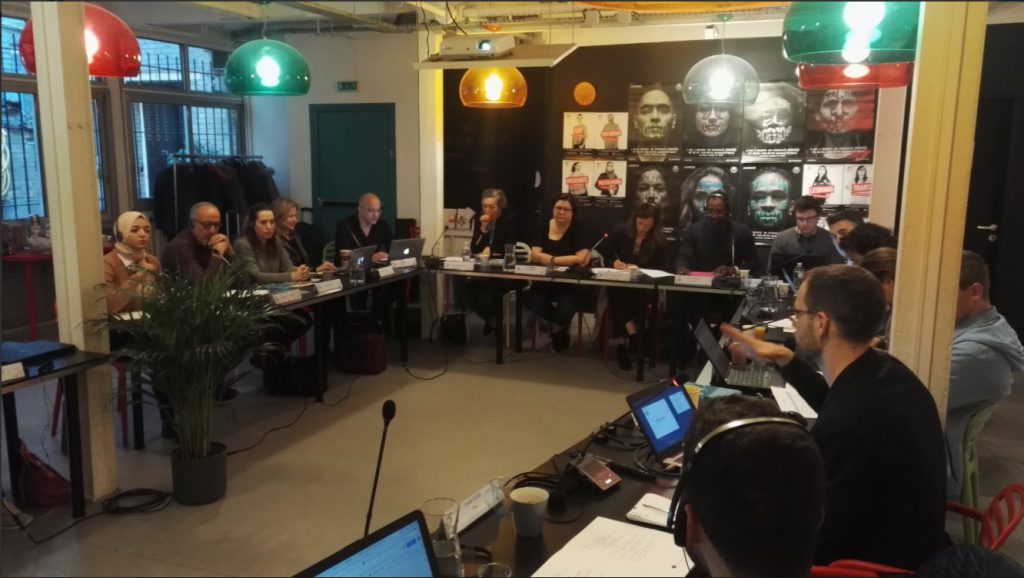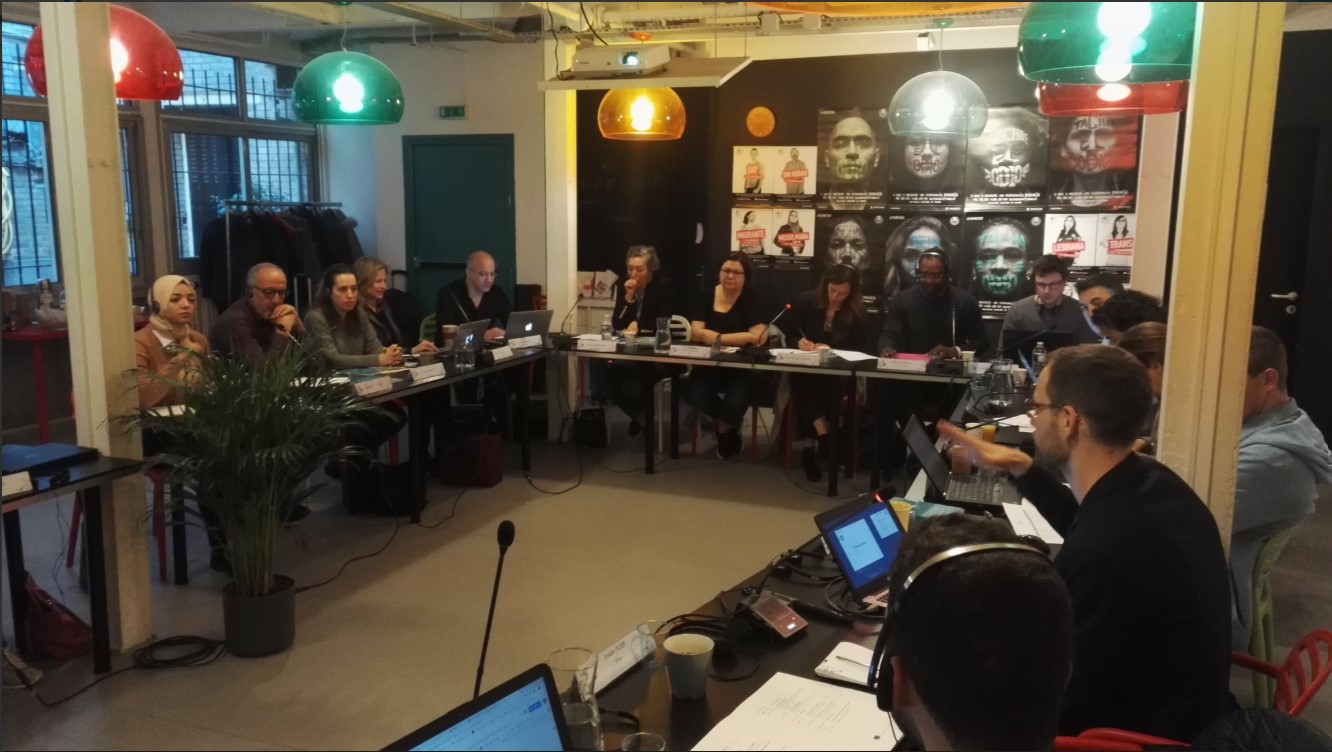
Paris, France, 24-25 April 2019 – The 15 partners of the new, Efus-led BRIDGE project (Building resilience to reduce polarisation and growing extremism) met for their first coordination meeting on 24-25 April, in Paris.
Representatives from Brussels (BE), Departmental council of Val d’Oise (FR), Düsseldorf (DE), Government of Catalonia (ES), Genk (BE), Igoumenitsa (GR), Leuven (BE), Reggio Emilia (IT), Region of Umbria (IT), Rotterdam (NL), Real Instituto Elcano (ES), Stuttgart (DE), Terrassa (ES), Ufuq (DE), and Vaulx-en-Velin (FR) spent two intense days discussing the dynamics of polarisation in their respective municipalities.
> What is polarisation?
Polarisation can be understood as a process of sharpening differences between groups in society that can result in increased tensions. It is a potential amplifying cause of the diverse psychological and social factors that make people vulnerable to radicalisation. The European Union is increasingly alerted by polarisation processes across Europe and co-finances the BRIDGE project to support the development of concrete tools to monitor and prevent polarisation at local level with the support of local authorities and civil society organisations.
> Diverse outlooks on a complex topic
During the meeting, each partner local authority gave an overview of polarisation in their municipality, highlighting their perceptions on “hot topics” around which forms of us-and-them thinking evolve. Moreover, they gave insights on monitoring mechanisms and intervention protocols that they already have or would like to work on during the project.
The whole consortium engaged in intense discussions on how to define and grasp polarisation. Is a certain degree of polarisation necessary for democratic processes and where do such processes take a problematic turn? What is the link between polarisation and forms of radicalisation that lead to violent extremism? How can we identify “bridge builders” who can help us mitigate manifest polarisation where it occurs, and how can we work with them to ensure they can make a positive impact?
> A toolbox to prevent and mitigate polarisation
Prior to the coordination meeting, BRIDGE’s expert panel had gone through an intense work phase to prepare a draft version of the toolbox that was presented during the meeting.
The expert panel set up by Efus consists of five experienced experts who bring a wide range of academic perspectives and backgrounds: Dr Eolene Boyd-MacMillan (Cambridge University, IC Thinking Research Group, UK) is a psychologist whose action-research has focused on developing, implementing and testing new interventions to address social polarisation, prevent violent extremisms and reduce destructive inter-group conflicts in a range of contexts.
Prof Markus Pausch (University of Applied Sciences of Salzburg, Austria) is a political scientist with particular expertise in inclusive democracy, citizenship education, democratic innovation and participation.
Tim Chapman (University of Ulster, Northern Ireland, UK) is a lecturer on restorative justice and has extensive academic and practical experience in restorative justice, intercultural conflict and probation.
Dr Götz Nordbruch (UFUQ.de, Germany) focuses on youth cultures in Islam, racism and Islamism, the use of media by young Muslims and migrants, as well as the prevention of radicalisation in education.
Adrian Jofre-Bosch (RI Elcano, Spain) is an independent counselor specialised in mediation, negotiation and conflict resolution.
Combining their expertise, they have prepared an innovative toolbox for preventing polarisation, which is currently being amended following the discussions with the project consortium and will soon be available to any municipality looking for practical, methodological advice to assess and monitor polarisation at local level.
> An ambitious programme of work
The project consortium will now conduct local polarisation audits in the 13 participating municipalities, which will aim to systematically identify and analyse relevant data in order to assess and monitor local polarisation processes. Subsequently, each partner will implement a local pilot project, which will sometimes use experimental methodologies to mitigate and counter polarisation processes that emerge around particularly debated “hot topics”.
Finally, three European seminars will provide an opportunity to advance the debate on polarisation at European level and disseminate BRIDGE’s experiences and results.
>>>> For further information on the BRIDGE project, see:
https://efus.eu/en/topics/activity/16652/



